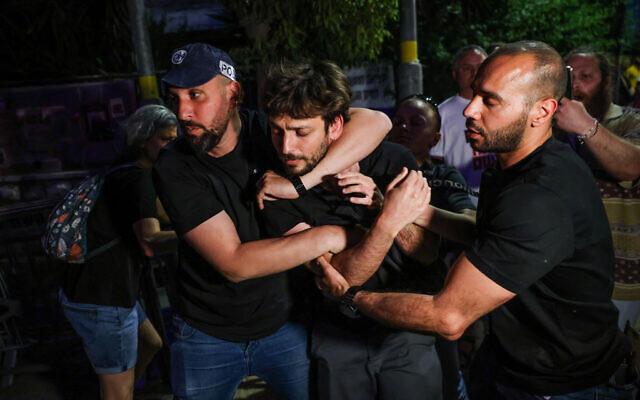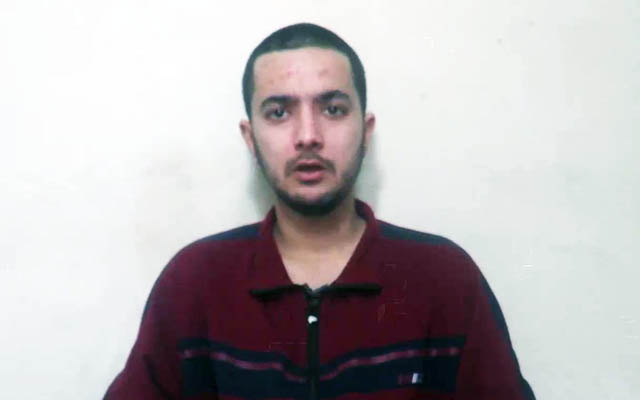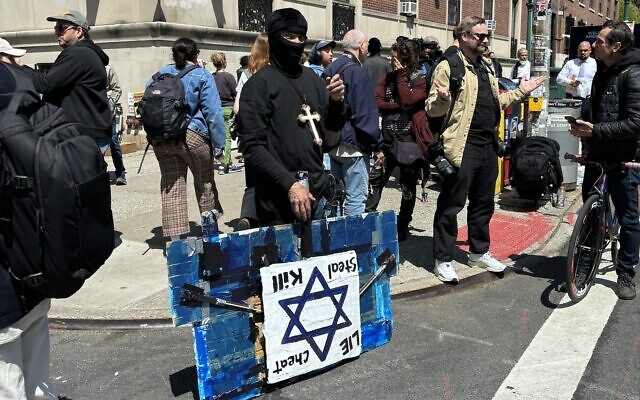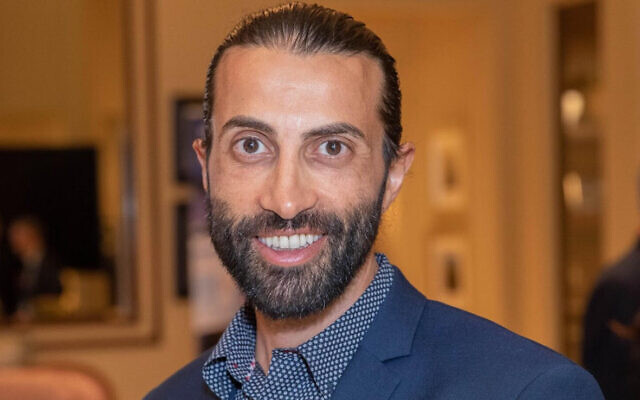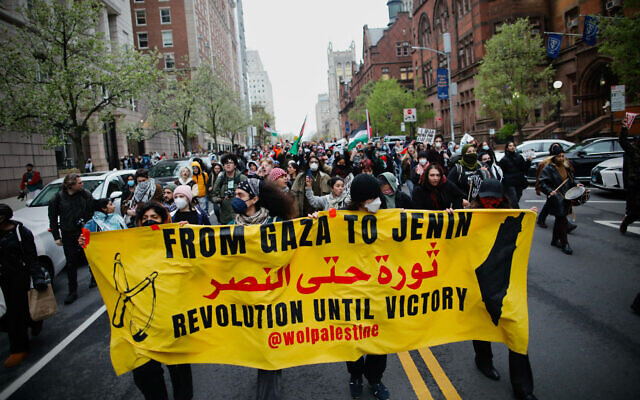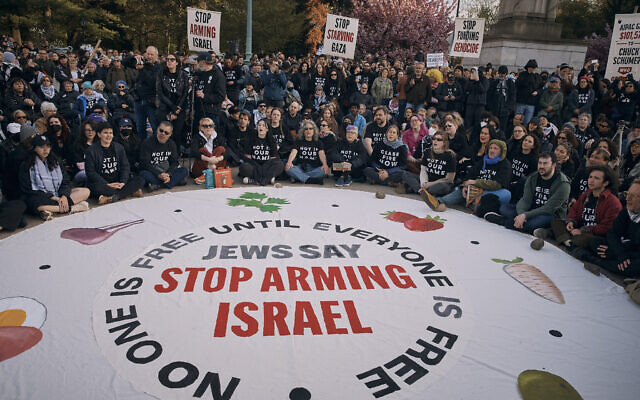Only 1 in 4 Israelis want government to forge ahead with judicial overhaul — poll
Survey aired on Channel 12 shows 62% prefers leaders stop or delay plans amid intense public pushback, including 42% of voters for Netanyahu bloc
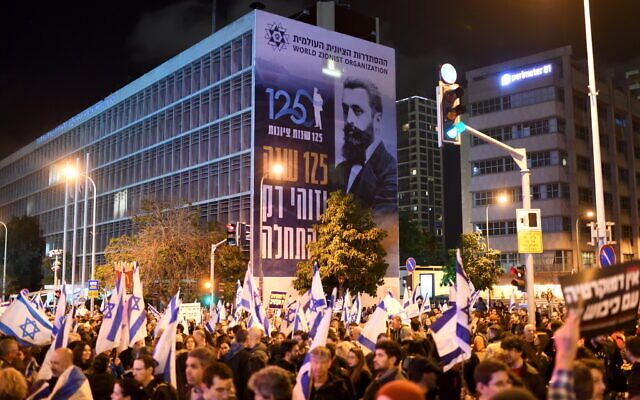
A survey published Friday indicated that over 60 percent of the public wants the government to halt or delay its legislative efforts to dramatically weaken the High Court of Justice and secure political control over judicial appointments.
Asked if they supported stopping or postponing the process, 31% in the Channel 12 poll said it should be stopped altogether, 31% said it should be delayed to enable a dialogue over its content, 24% said it should continue as planned and 14% said they didn’t know.
There was no indication of how many people were polled, through which means, or the margin of error.
The poll also found that among voters for Prime Minister Benjamin Netanyahu’s bloc of coalition parties, 42% supported stopping or delaying, while 45% said the process should go on.
With protest leaders calling for a nationwide strike Monday, the survey found significant backing for the action, with 28% of respondents supporting the move though they will not strike themselves, 22% planning to strike and 31% opposing the action. Nineteen percent did not know.
Inside Netanyahu’s bloc, a somewhat surprising 27% backed the strike, while 56% opposed and 17% did not know.
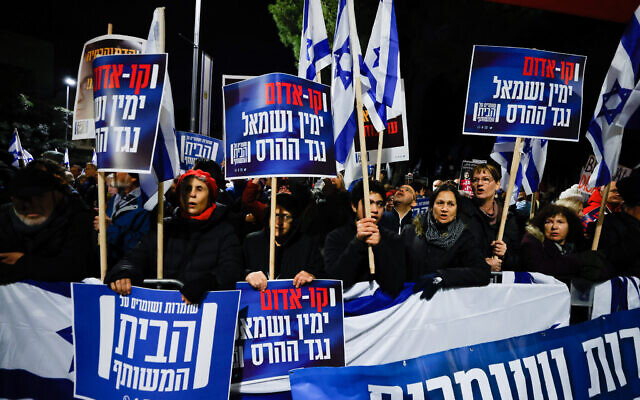
Netanyahu’s hardline coalition is made up of the far-right Otzma Yehudit party headed by Itamar Ben Gvir, the new national security minister, and the similarly aligned Religious Zionism, led by Bezalel Smotrich, the new finance minister, as well as the Haredi parties Shas and United Torah Judaism, headed by Aryeh Deri, the interior and health minister, and Yitzhak Goldknopf, the housing and construction minister, respectively. The small far-right Noam faction, a party that openly espouses homophobic and misogynistic views and is led by Avi Maoz, is also part of the coalition.
The legal overhaul will grant the government total control over the appointment of judges, including to the High Court, severely limit the High Court’s ability to strike down legislation, and enable the Knesset to re-legislate laws the court does manage to annul with a majority of just 61 MKs.
The plan for sweeping judicial changes has drawn fierce criticism from jurists, economists, financial executives and leading companies. It has also brought on weekly mass demonstrations in Tel Aviv, Jerusalem and numerous other cities. Another large protest is planned for Saturday night.
The planned Monday strike will come as the Knesset committee overseeing the bills to enable the judicial shakeup is set to vote on bringing some of them to a first plenary reading. Activists are also planning a large demonstration outside the Knesset on Monday at noon.
A poll published earlier this month showed that the perceived gap between the political left and right in Israel is the largest recorded since the monthly survey was started in 2012. Some 31 percent of respondents said they believed civil strife was likely.
At the same time, the study found that a substantial majority of Israelis want the government to reach a compromise on its controversial judicial overhaul plans.
The Israeli Voice Index, produced monthly by the Israel Democracy Institute (IDI) think tank, found that 63 percent of respondents were “in favor of dialogue between the different political camps regarding the proposed legislative changes in an attempt to reach compromise.”
Asked whether the plans presented by Justice Minister Yariv Levin were good or bad, 43% of respondents described them as bad, while 31% believed Levin’s plans were good. The remaining quarter said they “don’t know.”
The IDI survey recorded the highest schism between the political left and right since it began measuring data in 2012.
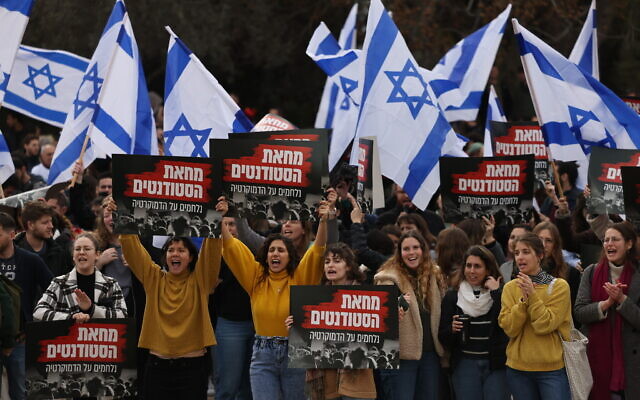
Today, 42.5% of those surveyed indicated that the strongest tension in Israeli society is between left and right. The figure is a sharp increase from October 2022 (34%), and higher than the multi-year average of 27.7% over the last decade.
The IDI asked respondents if they believed civil strife, including violence, was likely, to which some 31% responded that they believed it was, while 55% saw it as unlikely. A similar number said there was a low likelihood of violent clashes with security forces.
Asked what they felt would be the most effective forms of protest, 82% said demonstration; 51% said strikes and ceasing engagement in commerce; 35% suggested blocking entrances to public and government buildings; 35% said blocking roads for a few hours; 22% spoke of a refusal to pay taxes; and 18% said refusing to report for IDF reserves duty.



